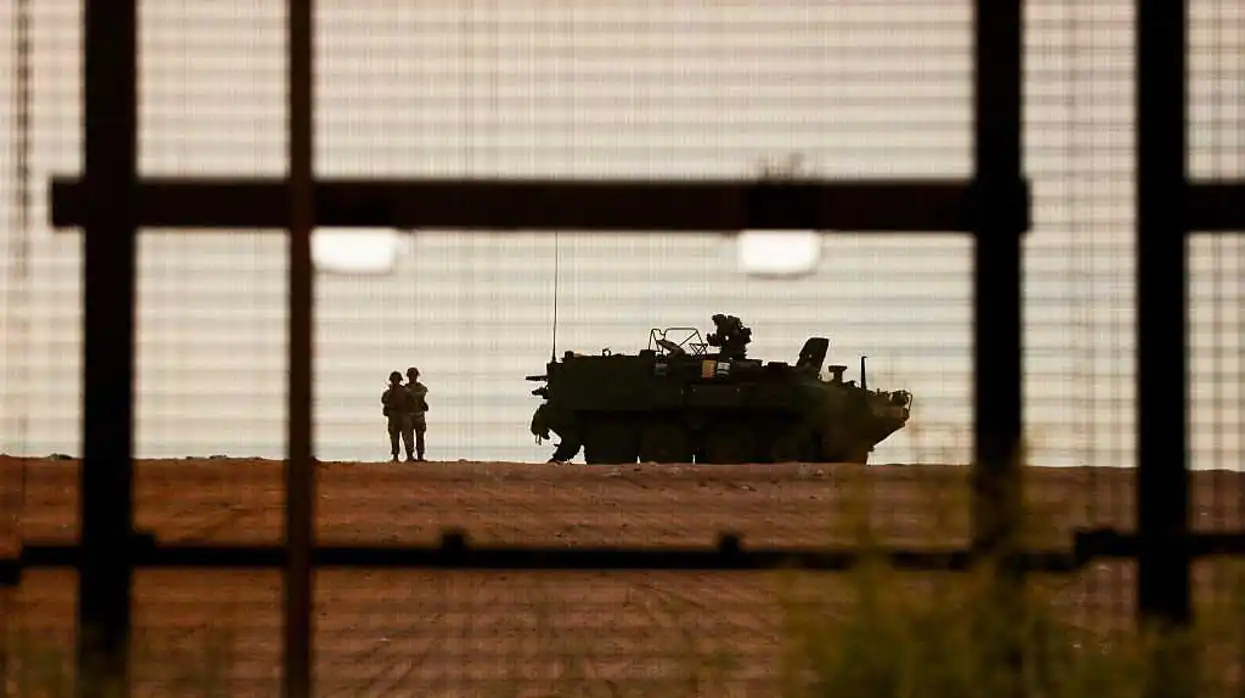With more than 1,400 people dead as a result of contracting the Ebola virus in West Africa, a top U.S. health official said that the virus has had the "upper hand" thus far but expressed optimism that there's still hope to control the outbreak.
Dr. Tom Frieden, director of the U.S. Centers for Disease Control and Prevention, was in Liberia on Tuesday, and plans to stop in Sierra Leone and Guinea, two other countries severely impacted by the historic Ebola outbreak.
While there, he said "lots of good things are happening" to curb its spread but noted that the "virus still has the upper hand."
To NPR, Frieden said that the outbreak is "definitely not at the peak" yet. But in his remarks in Liberia, he was hopeful in being able to help stop it.
 Participants load a stretcher into an ambulance during a training course to instruct non-governmental organisation (NGO) workers and doctors on how to deal with the Ebola virus in Brussels on Tuesday, Aug. 26, 2014. The course, provided by Doctors Without Borders, trains volunteer and medical personnel on precautions to take when entering a zone that contains the Ebola virus. (AP/Olivier Matthys)
Participants load a stretcher into an ambulance during a training course to instruct non-governmental organisation (NGO) workers and doctors on how to deal with the Ebola virus in Brussels on Tuesday, Aug. 26, 2014. The course, provided by Doctors Without Borders, trains volunteer and medical personnel on precautions to take when entering a zone that contains the Ebola virus. (AP/Olivier Matthys)
"Ebola doesn't spread by mysterious means, we know how it spreads," Frieden said in his remarks, which were broadcast on Liberian TV. "So we have the means to stop it from spreading, but it requires tremendous attention to every detail."
In other Ebola news:
- WHO scientist infected: A scientist working for the World Health Organization in Sierra Leone who became infected with Ebola was evacuated to Germany Wednesday for treatment at a hospital in Hamburg. "Hamburg has the capabilities to carry out this kind of treatment," Hamburg health department spokesman Roland Ahrendt said.
 Officials say an epidemiologist who was infected with Ebola while working for the World Health Organization in Sierra Leone has arrived in Germany for treatment. Hamburg health department spokesman Roland Ahrendt said Wednesday the doctor would be treated in the city�s UKE hospital at WHO�s request. (AP/dpa,Georg Wendt)
Officials say an epidemiologist who was infected with Ebola while working for the World Health Organization in Sierra Leone has arrived in Germany for treatment. Hamburg health department spokesman Roland Ahrendt said Wednesday the doctor would be treated in the city�s UKE hospital at WHO�s request. (AP/dpa,Georg Wendt)
- Ebola gets political: Democratic Sen. Mark Pryor used the Ebola outbreak in a new TV add to attack his Republican rival Rep. Tom Cotton, who voted last year against legislation to reauthorize programs that respond to pandemic situations.
Watch the ad:
- Twist on the "Ice Bucket Challenge": Instead of showing a man dump a bucket of ice water on his head to raise awareness for ALS, a current initiative that has gone viral within the last month, on the Ivory Coast a man dumps a bucket of soapy water on himself in the "Lather Against Ebola" campaign. Those who accept the "Lather Against Ebola" challenge are expected douse themselves with soapy water and hand out three bottles of hand sanitizer. Those who don't want to get drenched are expected to distribute nine bottles of sanitizer. Since it launched on Aug. 18, dozens of participants have posted soap-soaking clips to social media.
- How a 14th century outbreak might help: Looking back to how Venice, Italy, dealt with a 14th century outbreak of the plague might help officials better understand how to deal with current threats, including other disease outbreaks and also climate change or terrorism, a researcher said. "Resilience management can be a guide to dealing with the current Ebola outbreak in Africa, and others like it, as well as other issues like population growth and the impacts of global climate change," Dr. Igor Linkov with the U.S. Army Engineer Research and Development Center Linkov said in a statement. "Similar to what the officials of Venice did centuries ago, approaching resilience at the system level provides a way to deal with the unknown and unquantifiable threats we are facing at an increasing frequency."
According to the latest numbers put out by WHO Friday, 2,615 people have been confirmed infected with the Ebola virus and 1,427 have died.
—
The Associated Press contributed to this report.

 Participants load a stretcher into an ambulance during a training course to instruct non-governmental organisation (NGO) workers and doctors on how to deal with the Ebola virus in Brussels on Tuesday, Aug. 26, 2014. The course, provided by Doctors Without Borders, trains volunteer and medical personnel on precautions to take when entering a zone that contains the Ebola virus. (AP/Olivier Matthys)
Participants load a stretcher into an ambulance during a training course to instruct non-governmental organisation (NGO) workers and doctors on how to deal with the Ebola virus in Brussels on Tuesday, Aug. 26, 2014. The course, provided by Doctors Without Borders, trains volunteer and medical personnel on precautions to take when entering a zone that contains the Ebola virus. (AP/Olivier Matthys)






